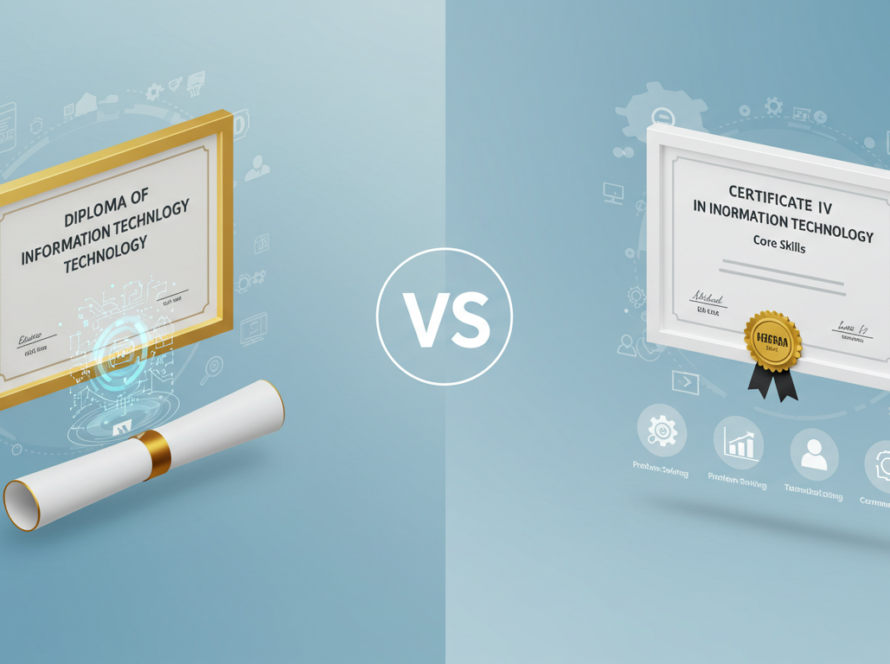Early Childhood Education and Care (ECEC) is more than just a career—it’s a profession that shapes the future. If you have a passion for working with children, pursuing a qualification in early childhood education can open doors to a meaningful and rewarding career. With the growing demand for early childhood teachers, the profession offers numerous benefits that extend beyond a regular salary. From the opportunity to make a lasting impact on children’s lives to the ability to enjoy job stability and career advancement, studying ECEC equips you with the skills and experience to thrive in a variety of fulfilling roles.
In this guide, we’ll explore the many benefits of studying Early Childhood Education and Care, focusing on career opportunities, skill development, and the powerful influence you can have on childhood learning. Whether you’re just beginning your journey or considering a career change, understanding the benefits of this field will help you make an informed decision and set you on the path to success.
What is Early Childhood Education and Care?
Early childhood education and care focus on the development, education, and well-being of children from birth to five years old. This stage is crucial as it lays the foundation for lifelong learning, social skills, and emotional intelligence. Professionals in this field work in various settings, including childcare centres, preschools, kindergartens, and even home-based care, where they engage with children through structured activities, play, and interaction.
A formal qualification, such as a Certificate III or CHC50121 Diploma of Early Childhood Education and Care, equips individuals with the skills to provide high-quality care, foster learning, and support children’s physical, cognitive, and emotional growth.
Why Study Early Childhood Education and Care?
1. High Demand for Early Childhood Educators
The demand for qualified early childhood educators is on the rise globally. Governments recognise the importance of early education in child development and learning experience, shaping future generations and leading to increased funding and job opportunities in the sector.
According to industry reports, the employment rate for childcare workers is expected to grow significantly by an average of 1.9 % per year in the coming years. This demand ensures job security and career stability for those entering the field.
2. A Fulfilling and Impactful Career
Working with young children is incredibly rewarding, not just in terms of emotional fulfilment but also in terms of the positive impact you can have on their development. The early years are essential for brain development, and by becoming an early childhood educator, you directly contribute to a child’s growth in ways that will last a lifetime.
You have the opportunity to shape children’s cognitive, emotional, and social skills during their formative years. By fostering a nurturing environment, you can help children learn essential life skills such as problem-solving, emotional regulation, and social interaction, all of which contribute to their future success.
3. Diverse Career Opportunities
One of the significant advantages of studying early childhood education is the broad range of career opportunities available. Graduates with a qualification in ECEC can pursue a variety of roles in different settings, such as:
- Childcare Centers and Preschools: Working directly with young children, planning and implementing early learning activities, and fostering a positive, engaging environment.
- Kindergartens: Helping children prepare for primary school by focusing on foundational literacy and numeracy skills.
- Special Needs Education: Providing support to children with disabilities or developmental delays, ensuring they receive the education and care they need to succeed.
- Policy and Advocacy Roles: Working with government agencies, non-profits, or advocacy organisations to influence policy and improve early childhood education on a larger scale.
These opportunities ensure that you’ll find a role that aligns with your skills and interests, whether you want to work directly with children, support other educators, or engage in policymaking.
4. Skill Development
In addition to the academic knowledge you gain, studying early childhood education equips you with a wide range of skills that are applicable in many areas of life and work. Some of the key skills you’ll develop include:
- Communication: You’ll learn how to effectively communicate with young children, their families, and other professionals, ensuring that everyone involved in a child’s development is on the same page.
- Leadership: Even if you’re not in a management role, you’ll take on leadership responsibilities by guiding children, helping them navigate social interactions, and mentoring other educators.
- Problem-Solving and Critical Thinking: As an early childhood educator, you will face challenges daily. Whether it’s resolving a conflict between children or adapting a lesson plan to meet the needs of diverse learners, problem-solving is key to your success in the role.
- Emotional Intelligence: Working with young children requires patience, empathy, and the ability to understand and respond to their emotional needs. Developing these emotional intelligence skills is essential for your professional growth and can positively affect your personal life as well.
5. Flexibility and Work-Life Balance
Many early childhood education roles offer flexible working hours, which can be particularly appealing to those seeking a better work-life balance. For instance, childcare centres and preschools often operate on shifts that allow you to work part-time or have your weekends free.
Additionally, many positions in the early childhood education sector align with school holidays, so you’ll have time off when children are on break. If you value flexibility and time for family or personal pursuits, this career offers the ideal work-life balance.
6. Job Satisfaction and Emotional Fulfillment
The emotional rewards of working with young children are immense. There is no greater satisfaction than watching a child reach a developmental milestone, whether it’s learning to write their name or successfully navigating a social interaction.
Your work as an educator will have a profound impact on the lives of children, and the bonds you form with the children you teach often lead to long-lasting relationships. Parents and families also appreciate the work you do, and many early childhood educators find the gratitude and appreciation they receive from families to be deeply fulfilling.
7. Growing Recognition for the Profession
As more studies highlight the importance of early childhood education, there is growing recognition of the role that early childhood educators play in society. Governments, educators, and families are beginning to place more excellent value on the work you do.
This shift has resulted in better salaries, improved benefits, and more opportunities for professional development. As the profession continues to gain respect, it’s becoming a more attractive and respected career choice.
8. Making a Positive Social Impact
The early years of a child’s life are essential for their future success, and early childhood education is one of the most effective ways to address educational inequality. Quality early childhood education programs provide children, particularly those from disadvantaged backgrounds, with the foundation they need to thrive in school and beyond.
By choosing a degree in early childhood education, you contribute to a more equitable society. You help to break down barriers and ensure that all children, regardless of their socio-economic status, have access to the education and support they need to succeed.
9. Opportunity for Growth and Advancement
Early childhood education offers plenty of room for growth. As you gain hands-on experience, you may move into higher-level roles, such as:
- Lead Educator or Director: Overseeing the operations of a childcare centre or preschool and managing a team of educators.
- Training and Mentoring: Sharing your knowledge and skills with new educators, providing guidance and support as they start their careers.
- Specialised Roles: If you develop an interest in a specific area—such as special education, leadership, or curriculum design—you can pursue further qualifications or training to specialise in that area.
These growth opportunities ensure that you can continue to develop your career, taking on new responsibilities and challenges as you progress.
Conclusion
Studying Early Childhood Education and Care offers much more than a rewarding career—it allows you to be part of something larger than yourself. By pursuing a qualification in this field, you contribute to shaping the future of children, equipping them with the skills they need to succeed in life.
The benefits are clear: job stability, personal fulfilment, diverse career paths, and the chance to positively impact society. Early childhood teachers are in high demand, and with the growth of the profession comes an increase in recognition, competitive salaries, and opportunities for growth. Whether you’re looking for flexibility, a chance to make a difference, or a profession that is constantly evolving, ECEC provides the perfect platform to build a meaningful career.
If you’re ready to take the first step toward a fulfilling, impactful career, pursuing a CHC50121 Diploma of Early Childhood Education and Care is a decision that will not only enhance your professional life but also provide you with the opportunity to leave a lasting, positive imprint on future generations. Take the step today and contact us to start shaping the future of education—one child at a time.

